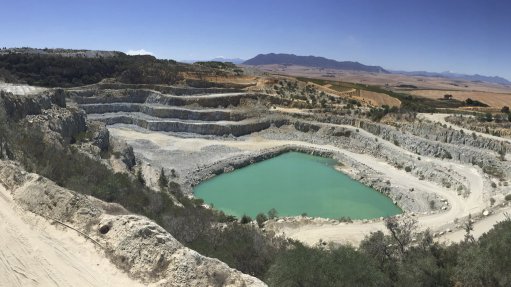
SEVERE NEED There is a severe need for services to be delivered from a central and well-organised body to the opencast mining sector
Owing to it being approached by various other opencast mining and quarrying companies and bodies, private-sector producers’ association Aggregate and Sand Producers Association of Southern Africa (Aspasa) will from now on only be known as Aspasa, as it dropped the ‘aggregate and sand’ from its name at its annual general meeting held in April.
The motivation behind this change, Aspasa director Nico Pienaar explains, is a critical need for services – within the opencast mining and quarrying sector – to be delivered from a central and well-organised body.
“Aspasa is aiming to broaden the association’s scope, as well as extend our service offering while continuing to grow this unique body,” he enthuses.
Industries such as salt, dimension stone, clay brick and others require the services that Aspasa provides, Pienaar notes, adding that provision is being made for different types of memberships.
These memberships include producer memberships in the mobile and contract crushing, formal quarry, rubble crushing, ash, coal, and borrow pit subsectors; associate memberships for organisations such as the National Occupational Safety Association, heavy machinery manufacturer Joy Global and industrial equipment supplier IMS Eng; and affiliate memberships for aggregate and sand, clay brick, salt and granite producers, among others, which are required to be legally compliant with legislation such as the Mine Health and Safety Act, environmental legislation and the Water Act.
Although Aspasa’s service offering includes legal compliance, local, international and government liaison, health and safety audits and training, public relations, environmental audit training, technical and transport support, training and education, Pienaar notes that key areas in mining – such as training, education, information sharing, guidance and development of workers and management – need more focus and can create a stronger, legally compliant opencast industry.
“Smaller mines have to comply with the same legislation as larger operations, but there is no manpower within smaller companies to handle all the legal requirements. Therefore, the mining industry regulator needs to urgently and seriously relook relevant legislation,” Pienaar explains, noting that officials need to provide better guidance with regard to compliance and not be unnecessarily punitive.
“Illegal operations need to be regulated so that all laws are equally applied to all role-players. The playing fields are not the same or equal. Honesty and professionalism is needed from officials.”
However, Pienaar stresses that Aspasa does not interfere with the running of business.
“What Aspasa is looking at, is the education of workers, health and safety training and auditing, as well as environmental training and audits.”
Meanwhile, Pienaar notes that Aspasa is also embarking on a drive to understand and rectify technical issues that relate to high-quality products being supplied in the quarry and opencast mining industries.
“Other focus areas include crushing and screening, which, if done properly, saves time and money. The legal issue of ‘lockouts on sites’ when working on machines is also a major focus as are proximity devices on vehicles to ensure that mining trucks operating at quarries don’t crash into each other or injure employees,” he concludes.